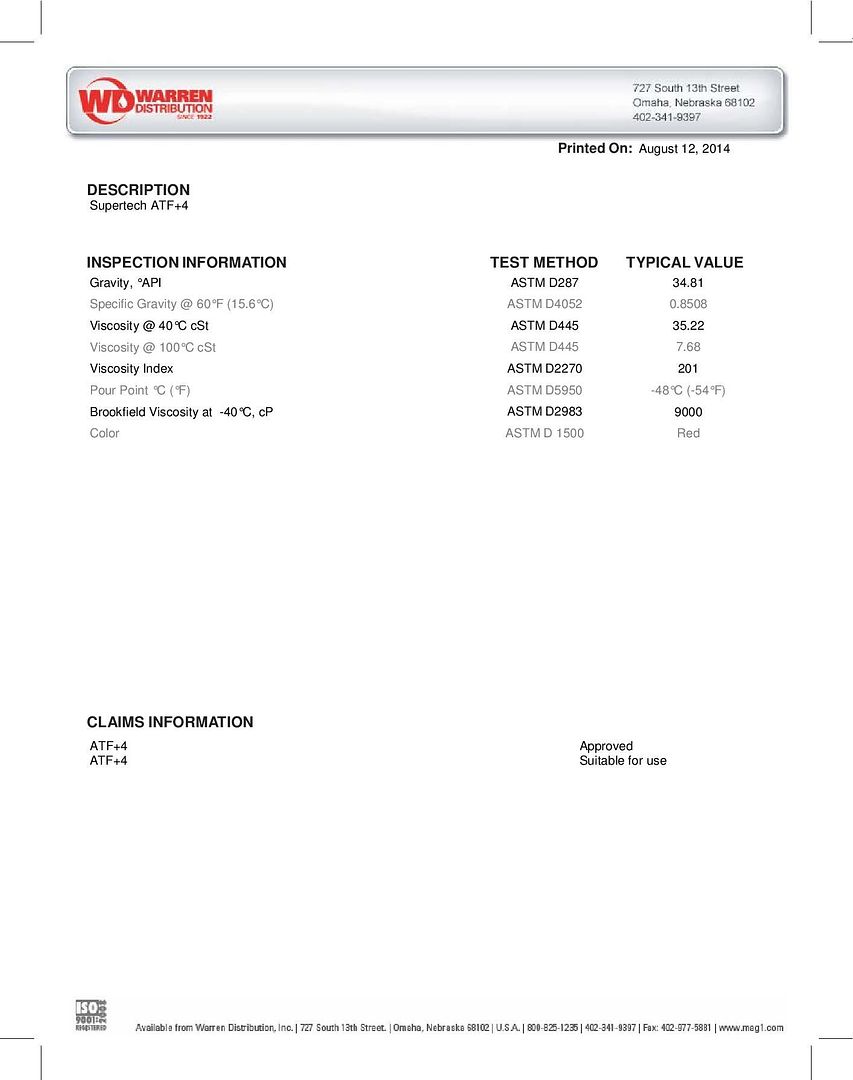I'm sure we've all heard that story:
"_________ product is the worst! I put it in my car and it killed my ________."
"Tried __________ and immediately had problems."
My recent experience? ST ATF+4.
My automatic Ram had unknown service history, so I decided to do a filters change and complete fluid flush. I did a cooler line exchange of the whole thing, including doing a Ford-style extra 8 quarts of flushing beyond the point where clean and clear fluid came out of the cooler line. After my last purge, I dropped the nearly empty pan and replaced both filters. Put the whole thing back together, did proper fill and top-off of the trans and proceeded to enjoy.
110 miles later, I had a transmission throwing a line-pressure code, Solenoid A code, and refusing to shift in limp-home mode.
This would normally be the time to rag on the quality of ST fluids, and assign blame to the fluid for causing some harm to the transmission. Difference here is that I know the 68RFE transmission well enough to know that a solenoid pack failure is a "not if but when" situation. I also known that ATF+4 spec is tightly controlled, and the ST ATF has the proper approval.
I drained the pan, dropped the pan, dropped the VB, dropped the solenoid pack, slapped a new one in, topped-off the trans and went back to the daily routine. 6000 miles later, still running ST ATF+4, I'm still going strong.
So did ST ATF harm my solenoid pack? Of course not. The pack clearly failed for the same reason as every other bad RFE solenoid pack out there. Just a bad design and age. Coincidence it happened right after ST ATF entered the picture? Yes.
Could the new ATF have caused an ailing but functioning part to slip over the edge? Distinct possibility.
Would I do anything differently? Not really, except just pre-emptively replacing a known trouble-part while I had the pan down, instead of waiting for its demise and doing the same thing twice.
It does go to show how wacky conclusions can be drawn by timing.
"_________ product is the worst! I put it in my car and it killed my ________."
"Tried __________ and immediately had problems."
My recent experience? ST ATF+4.
My automatic Ram had unknown service history, so I decided to do a filters change and complete fluid flush. I did a cooler line exchange of the whole thing, including doing a Ford-style extra 8 quarts of flushing beyond the point where clean and clear fluid came out of the cooler line. After my last purge, I dropped the nearly empty pan and replaced both filters. Put the whole thing back together, did proper fill and top-off of the trans and proceeded to enjoy.
110 miles later, I had a transmission throwing a line-pressure code, Solenoid A code, and refusing to shift in limp-home mode.
This would normally be the time to rag on the quality of ST fluids, and assign blame to the fluid for causing some harm to the transmission. Difference here is that I know the 68RFE transmission well enough to know that a solenoid pack failure is a "not if but when" situation. I also known that ATF+4 spec is tightly controlled, and the ST ATF has the proper approval.
I drained the pan, dropped the pan, dropped the VB, dropped the solenoid pack, slapped a new one in, topped-off the trans and went back to the daily routine. 6000 miles later, still running ST ATF+4, I'm still going strong.
So did ST ATF harm my solenoid pack? Of course not. The pack clearly failed for the same reason as every other bad RFE solenoid pack out there. Just a bad design and age. Coincidence it happened right after ST ATF entered the picture? Yes.
Could the new ATF have caused an ailing but functioning part to slip over the edge? Distinct possibility.
Would I do anything differently? Not really, except just pre-emptively replacing a known trouble-part while I had the pan down, instead of waiting for its demise and doing the same thing twice.
It does go to show how wacky conclusions can be drawn by timing.





